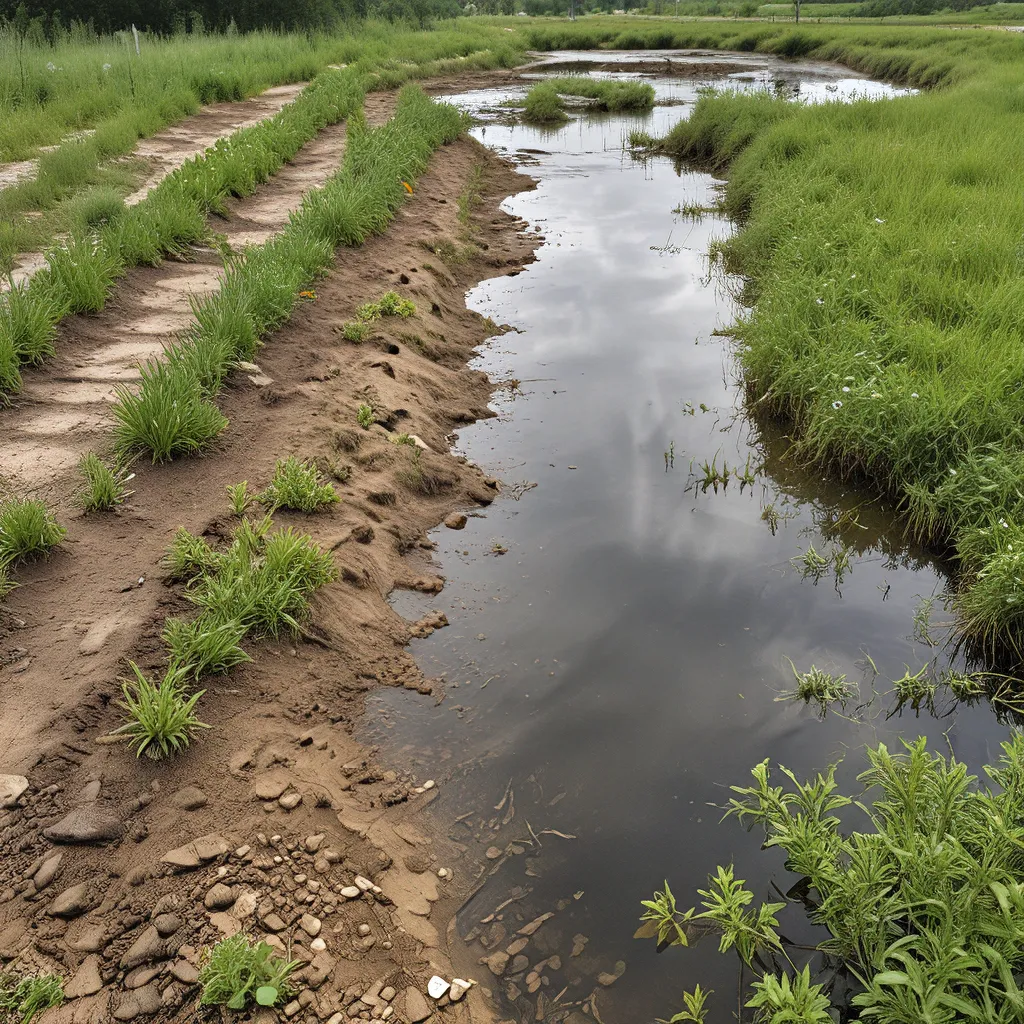
As an environmental enthusiast, I’ve always been fascinated by the innovative ways we can harness nature’s power to solve some of our most pressing challenges. And when it comes to wastewater treatment, one of the most intriguing solutions I’ve come across is the concept of phytoremediation – using plants to remove contaminants from water.
You see, I used to think that wastewater treatment was all about big, industrial-scale facilities with complex machinery and chemical processes. But the more I’ve learned, the more I’ve realized that sometimes the simplest solutions can be the most effective. And that’s where phytoremediation comes in.
The Remarkable Power of Plants
Think about it – plants have been cleaning up our environment for millions of years, long before humans ever set foot on the planet. They’re like nature’s own water filtration systems, with the ability to absorb all sorts of nasty pollutants and transform them into something harmless, or even beneficial.
And the best part? We can actually harness this power and use it to our advantage in wastewater treatment. By strategically incorporating certain plants into the treatment process, we can create a more sustainable and environmentally-friendly way of removing contaminants from water.
The Science Behind Phytoremediation
Now, I know what you’re thinking – how exactly does this whole “plant-powered” wastewater treatment thing work? Well, it all comes down to the amazing capabilities of plant roots.
You see, plant roots are like tiny, intricate sponges, with the ability to soak up all kinds of compounds from the surrounding soil and water. And certain plants have an even more remarkable talent – they can actually break down and transform those contaminants into less harmful, or even beneficial, substances.
This process is known as phytoremediation, and it’s been the subject of a lot of exciting research in recent years. Scientists have been exploring how different plants, from aquatic species to terrestrial ones, can be used to remove everything from heavy metals to organic pollutants from water and soil.
The Benefits of Phytoremediation
But the real beauty of phytoremediation is that it’s not just about removing contaminants – it’s about creating a more sustainable and eco-friendly approach to wastewater treatment. Unlike traditional methods that rely heavily on energy-intensive machinery and harsh chemicals, phytoremediation is a natural, low-cost, and low-maintenance solution.
Plus, it has the added benefit of creating beautiful, natural landscapes in the process. Imagine a wastewater treatment facility that’s not just functional, but actually enhances the local ecosystem – with lush, green plants, thriving wildlife, and maybe even a few scenic walking paths for the community to enjoy.
Exploring the Latest Advancements
Now, I know what you’re thinking – this all sounds too good to be true, right? Well, I can assure you that phytoremediation is very much a real and rapidly-advancing field. In fact, researchers around the world are constantly exploring new ways to push the boundaries of this technology.
For example, some scientists have been investigating the use of genetically modified plants that have been engineered to be even more efficient at removing specific contaminants. Others are exploring the potential of combining phytoremediation with other treatment methods, like constructed wetlands or biofilters, to create even more powerful and versatile systems.
And the best part? This is just the tip of the iceberg. As we continue to uncover the amazing capabilities of plants, I have no doubt that we’ll see even more exciting advancements in the field of phytoremediation. Who knows – maybe one day, we’ll be able to create self-sustaining, plant-powered wastewater treatment systems that can clean our water while also providing us with renewable energy or even edible crops.
Embracing the Future of Wastewater Treatment
So, if you’re like me and you’re passionate about finding more sustainable and eco-friendly solutions to our environmental challenges, then I encourage you to keep a close eye on the world of phytoremediation. Because I truly believe that this is the future of wastewater treatment – a future where we can harness the incredible power of nature to create a cleaner, healthier, and more beautiful world for all of us.
And who knows – maybe one day, you’ll even find yourself exploring the beautiful, plant-filled wastewater treatment facility just down the road, marveling at the incredible potential of these amazing organisms. Because when it comes to solving our environmental problems, sometimes the simplest solutions can be the most powerful of all.